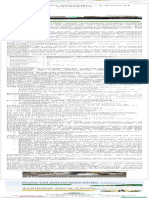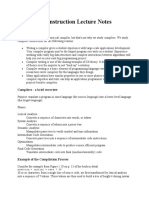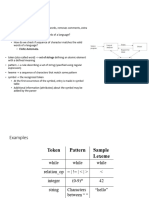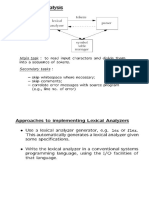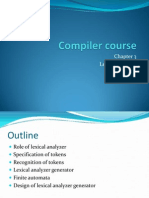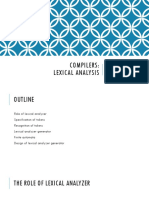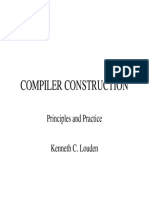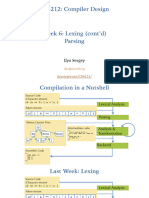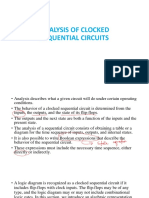0% found this document useful (0 votes)
38 views19 pagesLecture2 Web
The document discusses lexical analysis and regular expressions. It covers topics like lexical analysis/scanning, regular expressions which are used to specify languages, the Chomsky hierarchy and different types of grammars and machines. It also provides examples of regular expressions and their use.
Uploaded by
jmi40724Copyright
© © All Rights Reserved
We take content rights seriously. If you suspect this is your content, claim it here.
Available Formats
Download as PDF, TXT or read online on Scribd
0% found this document useful (0 votes)
38 views19 pagesLecture2 Web
The document discusses lexical analysis and regular expressions. It covers topics like lexical analysis/scanning, regular expressions which are used to specify languages, the Chomsky hierarchy and different types of grammars and machines. It also provides examples of regular expressions and their use.
Uploaded by
jmi40724Copyright
© © All Rights Reserved
We take content rights seriously. If you suspect this is your content, claim it here.
Available Formats
Download as PDF, TXT or read online on Scribd
/ 19







